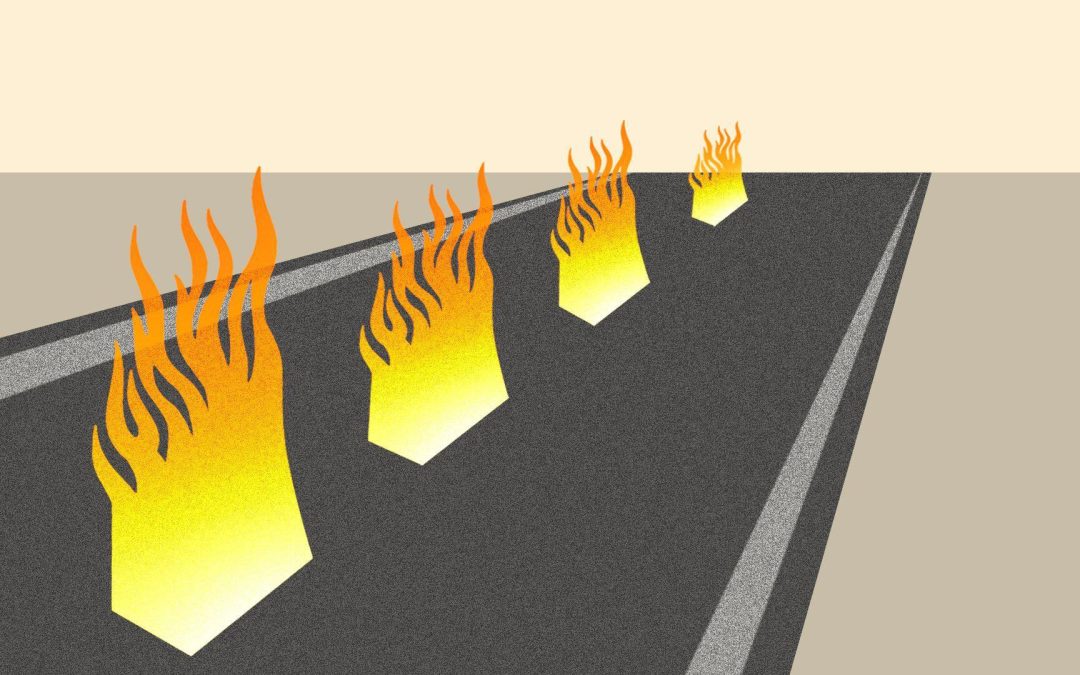Floods, heat waves and wildfires across the U.S. have killed dozens and reshaped entire communities from Kentucky to Northern California in the past week alone, Andrew writes. Why it matters: This summer has demonstrated repeatedly that our infrastructure is not able to withstand the changed climate of today, let alone future impacts.
Driving the news: Two 1-in-1,000-year rainstorms that struck communities about 400 miles apart in St. Louis and Hazard, Kentucky.
- In St. Louis, rainfall rates overwhelmed drainage systems and caused rivers and creeks to overflow, washing out roadways and forcing swift water rescues to be conducted.
- In Kentucky, water moved so forcefully that it pulverized school buses, washed mobile homes away, and destroyed roads and bridges, killing at least 37.
In the Pacific Northwest, a record-breaking heat wave struck that lasted longer than the 2021 extreme event.
- Seattle set a record for its longest streak of days with highs of 90°F or greater. Portland also set heat duration milestones.
- The lack of widespread air conditioning caused cities to get creative with cooling shelters, as Portland area shopping malls and county libraries were kept open late, for example.
And in California, the week also brought a deadly wildfire that stunned scientists due to its growth rate and extreme behavior.
The big picture: With climate change, outlier events are trending closer to the norm, exceeding our ability to cope.
- “Years of wearing down from weather events have left our built environment incapable of withstanding heavier precipitation on a per event basis,” said Steven Bowen, head of catastrophe insight at Aon, via email.
- “One thing is clear: The modeled climate impacts we assumed were 25 to 50 years away are in some cases already occurring today,” Bowen said.
- The White House seems to recognize these challenges, with funds under the bipartisan infrastructure law directed at hardening infrastructure.
Yes, but: There is a chance that even now we are underestimating what Mother Nature is capable of due to human-caused climate change.
- Climate change may already result in surprises missing from climate models, such as the once unthinkable temperature of 104°F (40°C) in the U.K.
- If this is the case, we better buckle up, as more unpleasant surprises surely lie ahead.

